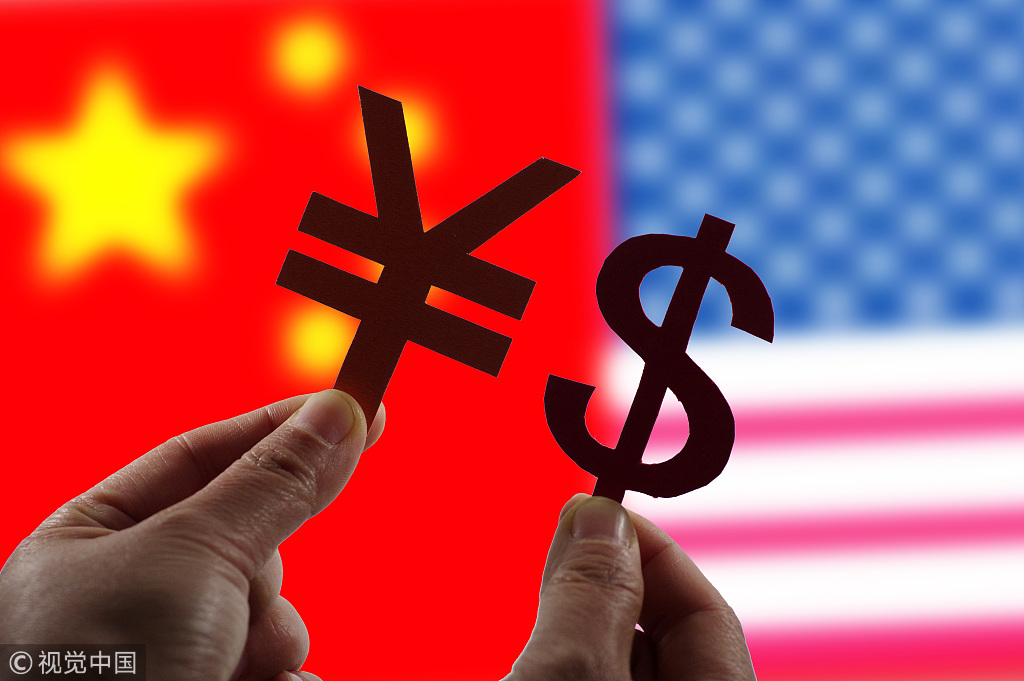US-China trade tensions: speaking truth from facts


In the eyes of most Americans, China's investment environment is the worst of all, filled with widespread intellectual property theft, rule violations by government officials, and distorted regulations that suppress foreign investors and erode their interests. Given the fact that the Chinese officials are enthusiastic about attracting foreign direct investment, many people in Washington DC believe that the United States, with a bargaining power of over $5 trillion of direct investment abroad and total overseas investment assets of over $25 trillion, must show off its muscles to punish China's misconduct and force China to change routes.
If true, this sentiment has been simmering in Washington for a long time. Because of the reckless behavior and the emotional way American representatives mainly handle differences, it is expected on this side that sooner or later the boiling point will be reached. Now, thanks to the Trump administration's protectionist ideology with inherited American hegemonic behavior, this day has finally arrived with an accelerated pace. On Wednesday, April 4, 2018, the Trump administration announced 25 percent tariffs targeting about $50 billion in Chinese exports to the United States.
The move has several implications. First, it intends to punish China for the damage caused through entrenched theft of US intellectual property and forced technology transfers. Second, it also aims to hamper China's efforts to upgrade the manufacturing base. Third, there are indications that US trade authorities want to cause the global value chain to relocate from China as the scope of tariffs cover many typical global value chain goods such electronics, telecommunications, machinery and transportation equipment.
However, the situation worsened as China adopted an uncompromising approach to US aggression. No more than 11 hours later, China retaliated by slapping similar tariffs on some 106 US items with a value matching the $50 billion on Washington's list. Now the world is watching closely how the game is played by the two super trade powers. The US started the beggar thy neighbor approach while China quickly put both countries in a prisoner's dilemma. Next, it is time for the US to punish China for reacting and then China's turn to respond more aggressively. In response to China's reaction, Trump instructed the United States Trade Representative on April 5 to consider whether $100 billion of additional tariffs would be appropriate. The two countries have behaved as the game theory predicts. In this prisoner's dilemma game, both countries are forced with no good options, but to follow suit with each other. In fact, this game is not new, but simply a revival of the stupid trade wars by irresponsible governments during the Great Depression in the 1930s. In my opinion, misinformation has been a factor that made both countries emotionally charged.
I say "misinformation" because the US public has been misled by perceptions, not by truth about China's investment environment. From the data I have read, my immediate conclusion is China's investment environment isn't that unfavorable to US firms, though it is undoubtedly true that improvement is always needed.
Is China an important country for US direct investment abroad? If you look at the relative size of US direct investment in China, the answer is, not as important as expected. In fact, US direct investment in China is far behind countries such as the Netherlands, the UK, Luxemburg, Ireland and even Japan. By 2016, US total direct investment in China was only $93 billion with about 67,000 US firms in operation, similar to the size of US investments in Mexico. Meanwhile, in the Netherlands, the cumulative US direct investment amounted to $847 billion, and even in Ireland the amount was $387 billion. China is only the 15th largest recipient of US direct investments abroad.
Therefore, many people have concluded that US companies prefer to invest in European and developed economies rather than in China because they all have favorable environments to attract investors there. This may be an explanation for why China has not attracted enough direct investment from the US, due to fears of the country's economic system by the US investors. However, "seeing is believing" and "small is beautiful". Here, I will use a series of performance indicators to argue that instead of bad practices by China as accused by US trade officials, US direct investment in China has outperformed counterparts in any other overseas location and China is already a promising market for more US investors.
According to statistics from the US Bureau of Economic Analysis, the total sales of US firms operating in China amounted to $356 billion in 2015 and, ironically, this number is similar to the size of the US trade deficit with China, which was recorded as $335 billion that year. What implications does this sales figure have? In spite of the fact that US firms invested less in China than in the Netherlands, Luxemburg, Japan, Australia and Mexico, they have sold more goods in China than in these seemingly more favorable locations. If measured by total sales realized by US firms, China, being the 15th largest recipient country of US direct investment, ranks as the sixth most favorable location for US investors after the UK, Canada, Singapore, Ireland and Germany. Actually, China's position is closely similar to that of Germany as US firms sold about $357 billion goods in Germany in 2015.




































